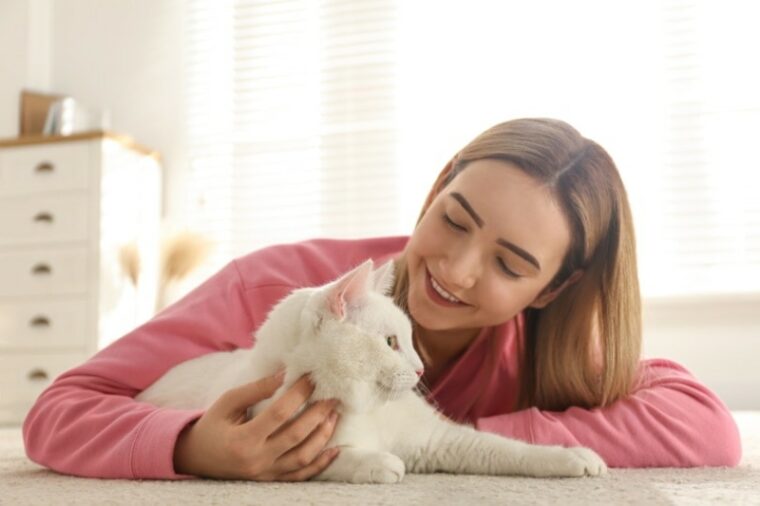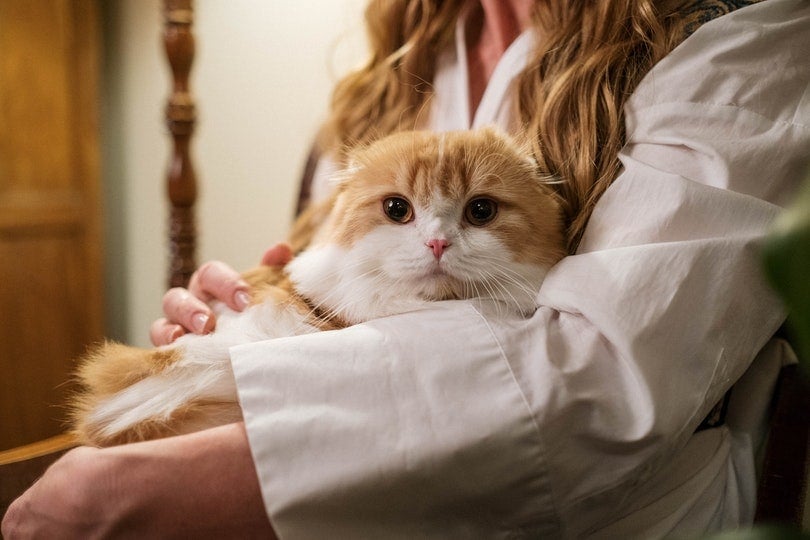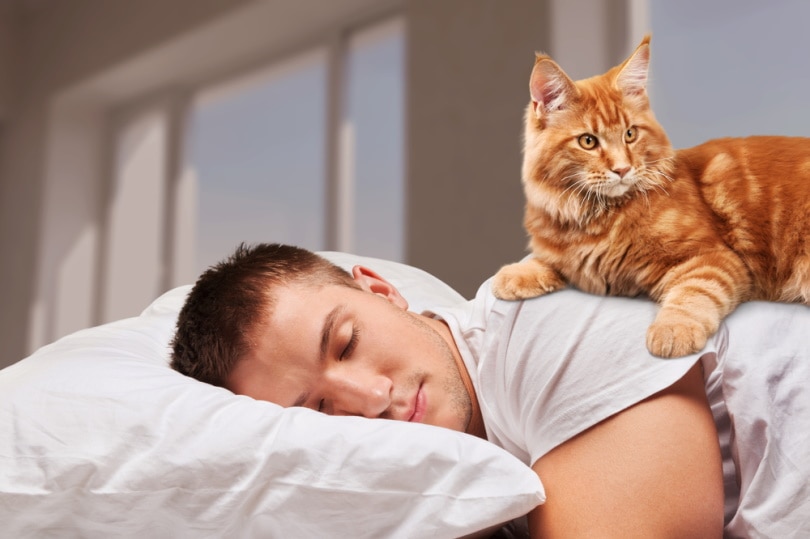
There’s nothing quite as comforting when you’re feeling down as a good snuggle session with your kitty. The mews, head nudges, and purring let us know that our cats are there for us when we need them the most. While you can probably attest to the positive effect your cat has on your mental health, you might be wondering if there is any science that proves that our pets are good for our brains. The answer is yes. Study after study suggests that cat ownership can boost mental health.
Keep reading to learn how owning a cat can positively impact not only your mental health but your overall well-being, too.
Depression
Depression is a common mental health disorder affecting around 5% of adults worldwide. It is marked by overwhelming sadness, grief, hopelessness, and despair that lasts two weeks or longer. Untreated depression can affect every aspect of one’s life.
While owning a cat may not cure depression, science suggests it may help with the symptoms. One study from 2017 found that people with cats had significantly lower depression symptoms than dog owners.1
In 2013, researchers found a link between depression and high blood pressure. Patients with uncontrolled hypertension often commonly show symptoms of depression. The presence of cats can reduce blood pressure, potentially also reducing one’s risk of cardiovascular diseases.
And we have good news for people who love cats but are allergic to them. One study from 2015 suggests that watching online cat media (you know,2 those countless YouTube cat competition videos) can provide an energy and mood boost. So, you can imagine how much this effect is amplified by interacting with cats in real life.

Anxiety
Cats can do more than ease depressive symptoms. Studies suggest they can also reduce feelings of anxiety. In 2008, researchers found that 44% of cat parents reported receiving a sense of safety from their cats.
The mere sound of your cat’s purr can help alleviate anxiety, too. We all know that sounds and music can create a mood. Fast-paced music can make you feel more awake and help you concentrate better. Slower tempos can quiet your mind and relax your muscles.
While your cat’s purr may not be “music” per se, it still can facilitate that calming sensation. A cat’s purr vibrates within the 20–140 Hz range. Various studies have shown that sound frequencies in his range promote healing and improve bone density. The vibration levels may also decrease symptoms of dyspnea (difficulty breathing) and lower your anxiety and stress levels.

Stress
If having a warm kitty snuggling up on your lap, making biscuits, and purring away sounds like the perfect cure for stress, you’re right; it is. Cats, or pets in general, may provide a soothing effect to their humans as interacting with them may reduce the stress hormone levels in your body. The less cortisol in the body, the easier feelings of calmness and happiness can prevail.
Petting a cat for as little as ten minutes can decrease how much cortisol (the stress hormone) is in your saliva. This may be why many universities and colleges worldwide now offer “Pet Your Stress Away” programs, where they bring cats and dogs onto campus for students to interact with to help relieve the stress of finals and midterms.

Overall Well-Being
People without mental health illnesses can experience increased quality of life by simply having a cat. One survey from 2017 shows that when children have high attachment levels to their cats during adolescence, they may have an improved quality of life and better communication with their peers and parents.
Another study from 1991 found that cat ownership helped relieve new cat owners of health complaints such as back pain and headaches. However, researchers did suggest that the positive health effects of bringing home a new cat for the first time did seem to wane after some time.

Conclusion
There may be nothing quite as rewarding in life as owning a cat. They improve your quality of life, and science proves they can also boost your mental and physical health. But, of course, you can’t adopt a kitty only because you want them to help cure your depression or anxiety. Your heart needs to be in the right place. Check out our cat adoption checklist to ensure you have everything you need before bringing in your new pet.
Featured Image Credit: New Africa, Shutterstock






